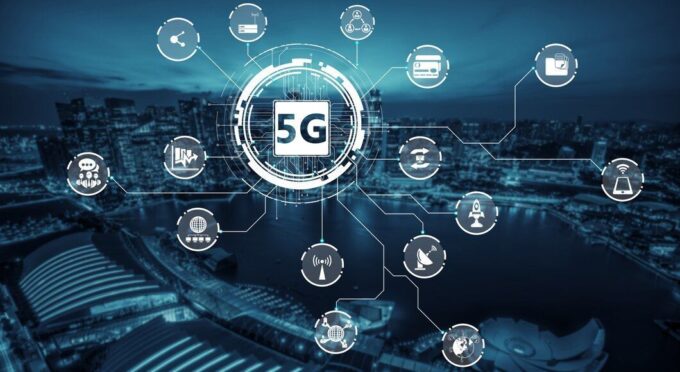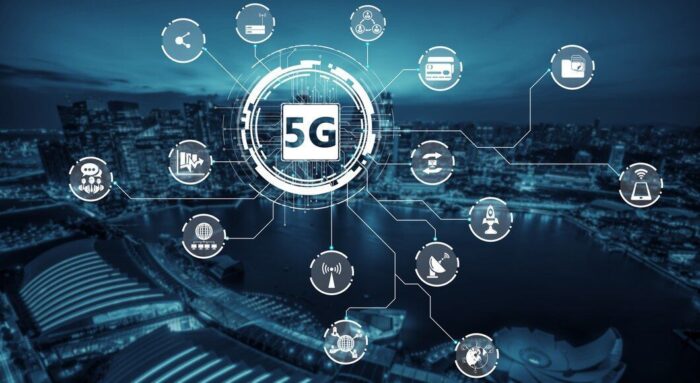

Many benefits can be obtained from 5G technology, we can enjoy more powerful internet connectivity than 4G. For many people, internet speed is very important, especially in the professional field. 5G implementation can support work productivity while making business operations more efficient.
To learn what are the benefits, opportunities, and challenges in implementing 5G, check out the following article.
About 5G Network and How it Works
5G is increasingly being implemented in many industries due to its advantages. 5G is the fifth generation of cellular wireless technology and has advantages over 4G. Not only can it support faster data transfer, but it can improve the stability of internet connections as well.
The sophistication of 5G can change the habit of accessing platforms or applications. The development of 5G can also support the development of various other advanced technologies. Without a high-quality internet connection like 5G provides, some things become difficult to implement. For example, applications with high sophistication, autonomous vehicles, and other advanced technologies.
Although both use radio waves to transmit data, 5G networks have certain differences. 5G networks use OFDM or ‘Orthogonal Frequency Division Multiplexing’ which functions to encode waves efficiently. In addition, 5G network transmitters are also smaller.
Mobile operators can use 5G to provision independent networks using the same infrastructure and help customize certain services. Not only is it more efficient, but 5G is also able to support high-quality network services.
5G Benefits, How it Differs from Previous Generations
To understand more about the benefits of 5G and what differentiates it from previous-generation networks, check out the points below:
– Speed Increase
Using 5G means we can utilize high-speed internet. Internet speeds with 5G networks can reach 10 times the speed of 4G. To support business and corporate operations, 5G is very reliable but can also be used for personal needs.
– Decreased Latency
Apart from the high speed, 5G latency is also lower. Then what is latency? This is the delay when receiving information, even though data transmission has been carried out, it does not necessarily receive data at that time. The latency level on 4G networks is around 200 ms, which is still not optimal for professional needs, especially for large companies.
5G latency is much smaller than that at just 1 ms so users can respond immediately to the information they receive. Low latency means improved responsiveness. Software or applications don’t need long response times to present information, which can improve user experience.
Read also : Transforming Healthcare With Advanced AI Applications
– Increased Bandwidth
To support wide bandwidth, 5G is very reliable. 5G technology can reach low to high bands from 3 GHz as reached by 4G to above 100 GHz. The wide range of frequency bands makes 5G capable of boosting network capacity significantly.
The benefit of high bandwidth is that more devices can be connected and perform data transfer activities at once. 5G specifications are quite different from 4G in terms of latency, bandwidth capacity, and data transfer speed. The development of 5G triggers many advanced applications that can provide extraordinary functionality.
About 5G Technology Opportunities
5G plays an important role in the recent digital transformation. Many aspects of life will depend on 5G technology to improve the country’s economy, cultural activities, and social interactions. Personal internet needs be it streaming, or gaming, can be done without serious obstacles.
Instant downloads can be expected with the development of 5G to increase the efficiency of internet usage. Several companies are implementing 5G to improve the quality of their products and services. Not only information technology companies, but many other industrial sectors are utilizing the sophistication of 5G.
For educational needs, 5G can remove obstacles to accessing digital learning and can provide learning resources quickly. 5G technology can also be expected to support logistics tracking so that it can improve supervision and quality control.
Similar to healthcare, many advanced technologies have been applied to improve healthcare services be it diagnosis, therapy, clinical trials, specific treatments, and so on. To support Smart Cities, Sustainable Urban, or similar concepts, 5G can help very well. There are many other opportunities from the sophistication of 5G technology depending on how businesses or companies utilize it.
What are the Challenges of 5G Technology Implementation?
The benefits of 5G are invaluable for improving the efficiency, security, and quality of a business. Although 5G can provide many valuable benefits, there are still certain obstacles that must be faced so that solutive steps are needed to overcome them. Check out the following points regarding the challenges that can hinder the implementation of 5G:
– Big Investment
Although 5G can help companies operate efficiently, large investments need to be made to implement it properly. Not only do you need to prepare large funds but the implementation of 5G must also be carefully planned to be effective.
Implementing 5G will require adequate infrastructure be it installing antennas or various network support equipment. For areas that still cannot be connected to 5G to be connected to 5G, considerable investment is needed.
– Data Security Challenges
As with any digital implementation, data security is one of the challenges. Data privacy needs to be properly secured, especially for confidential company information. The more widespread the implementation of 5G, the more critical the potential for cyber threats.
Therefore, data protection is one of the critical issues that should not be underestimated. More connected devices mean more potential for cyberattacks. Adequate data protection procedures are needed so that 5G can still be implemented safely.
Read also : Blockchain Technology Integration In Supply Chain Management
– Impact On Health And Environment
Another issue that may challenge the implementation of 5G technology is around the impact on health. The infrastructure used for 5G implementation can expose electromagnetic radiation.
– Operational License Challenges
The challenge of implementing 5G technology can also come from regulations. Policies and operational licenses are sometimes quite difficult to obtain due to certain factors. The expansion of 5G could be hampered due to policy issues. Therefore, adequate coordination between related parties is needed so that the expansion of 5G can run smoothly.
Despite certain challenges, 5G still has potential opportunities with various benefits. Read more at Bellevuecn.com Many business constraints can be overcome with this advanced network technology.
